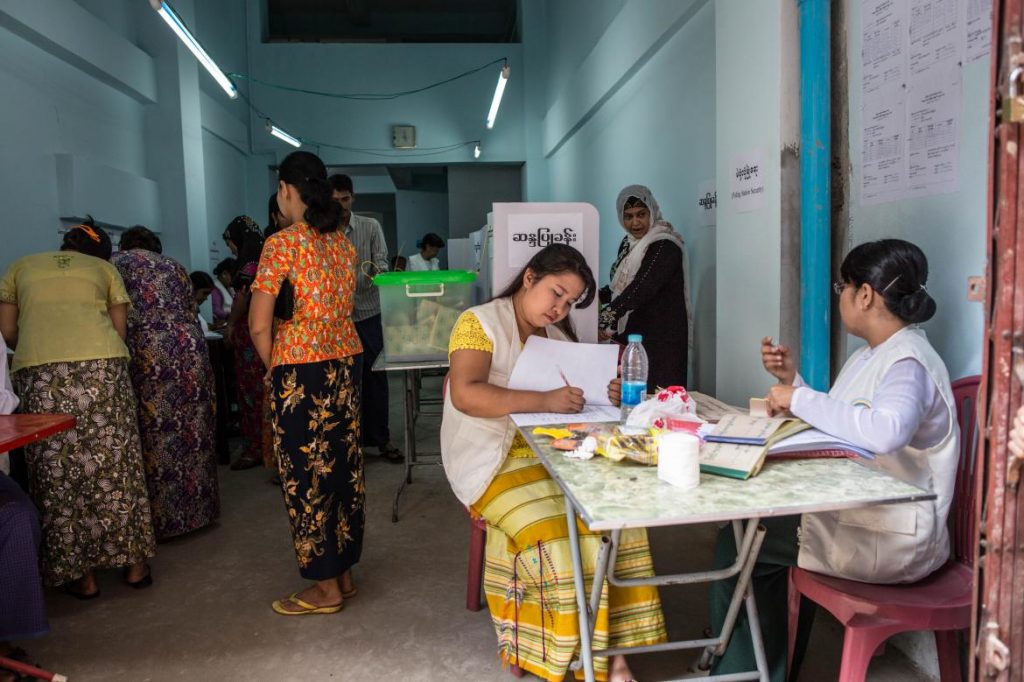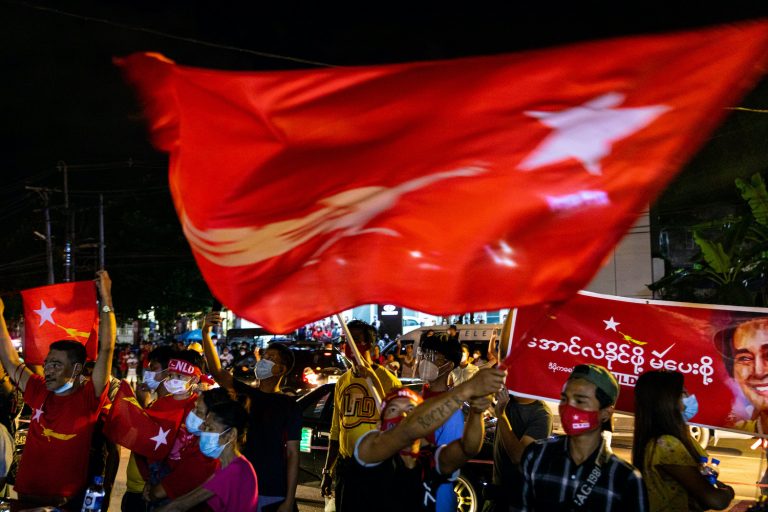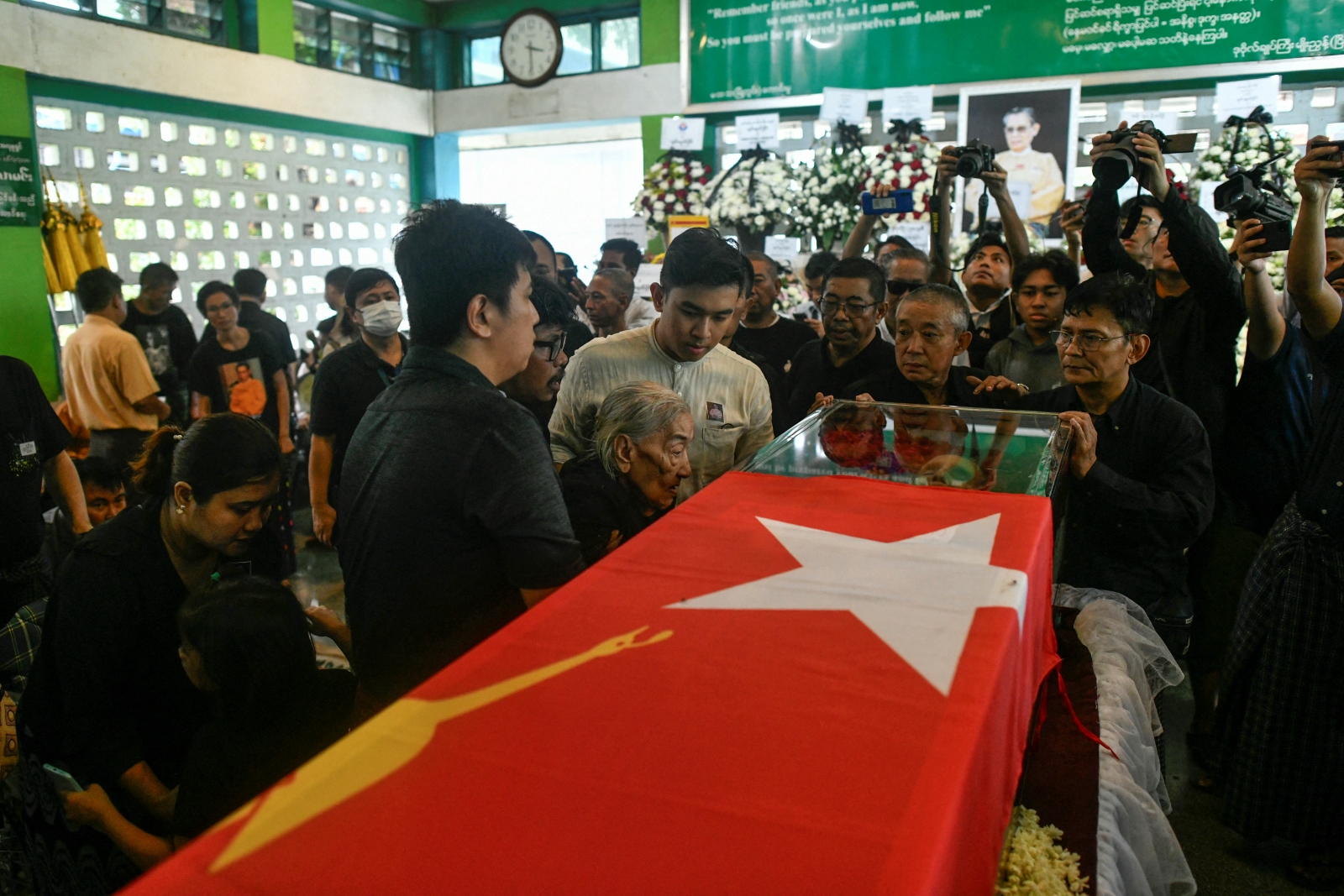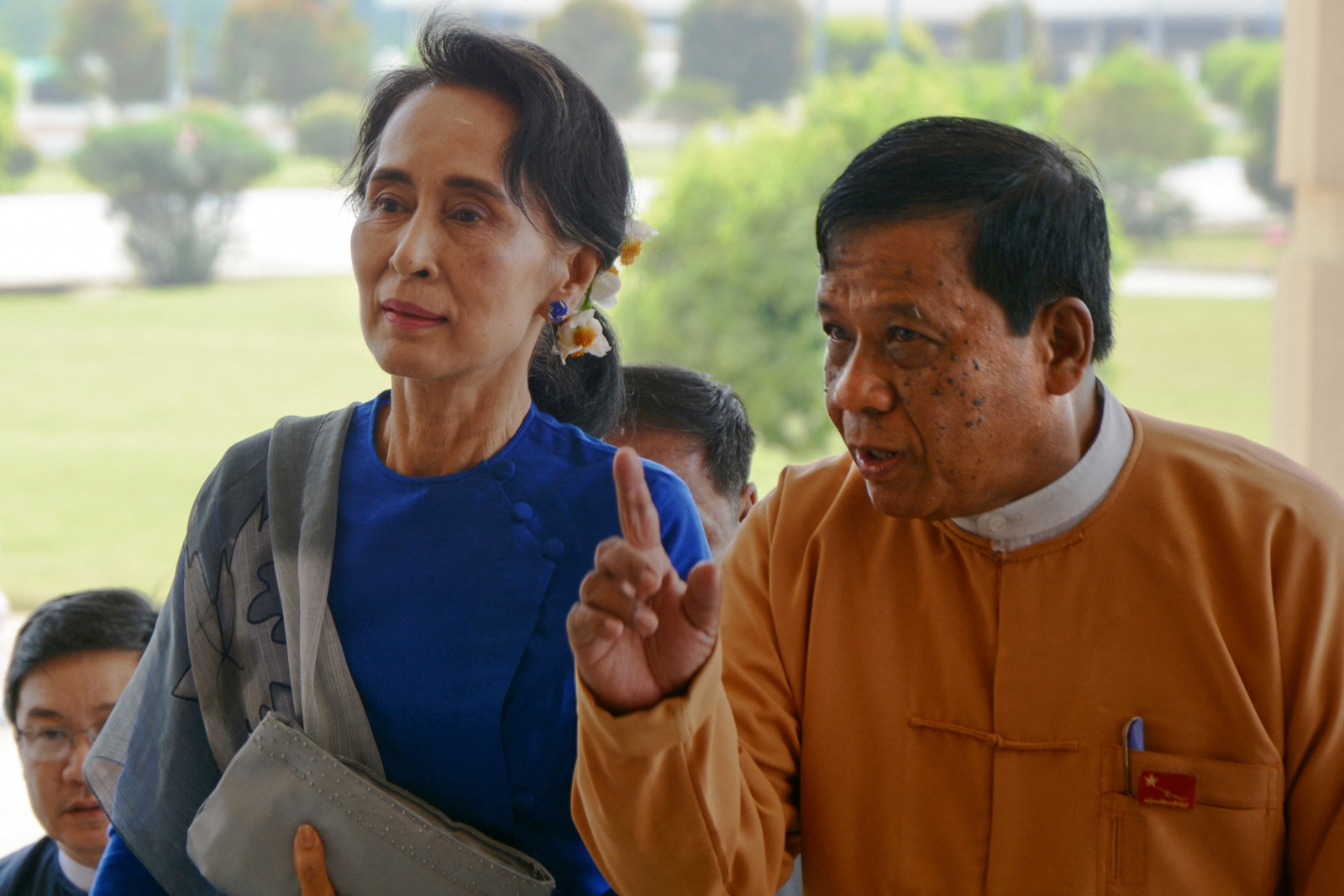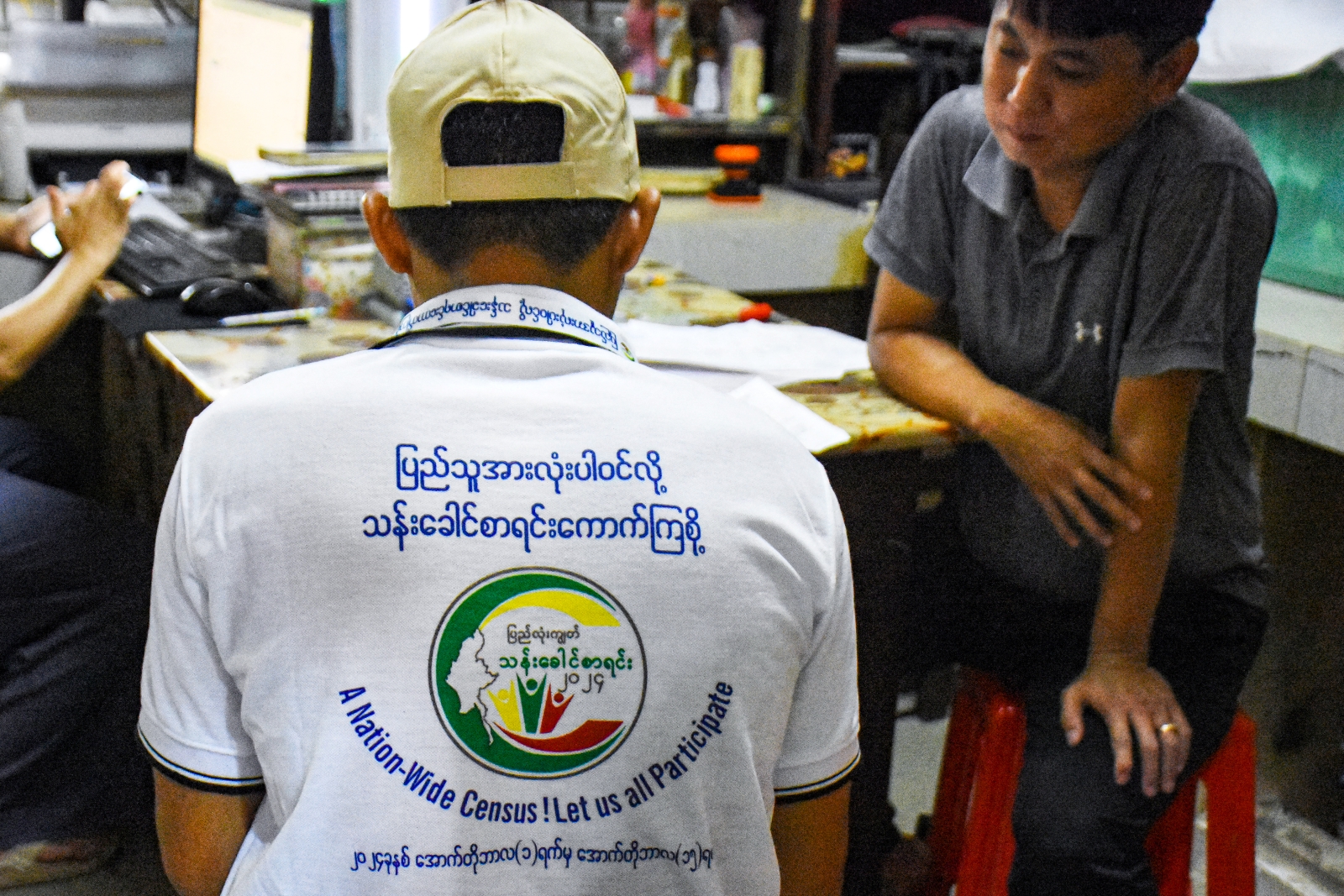The overwhelming NLD election victory has raised concerns about whether opposition parties will be able to perform an effective check and balance role in Myanmar’s next parliament.
The stunning election victory of the National League for Democracy has paved the way for the country’s most dramatic transfer of power since the Ne Win coup in 1962 ushered in more than 50 years of military rule.
The handover raises many questions and uncertainties.
They centre on the NLD’s lack of experience in running a government and how its main rival, the Union Solidarity and Development Party, will perform in what will be for the former military men who dominate its ranks the unaccustomed role of being members of an opposition party.
“The handover of power will be a huge setback for the USDP,” said U Aung Zaw, the founder and editor-in-chief of The Irrawaddy media company, who doubted that the party would perform effectively in opposition in the next parliament. “Because of its bad track record it will be difficult for it to fulfill the role of a opposition that has the people’s trust,” he told Frontier.
A weak opposition will struggle against a parliament and government dominated by the NLD and its iron-willed leader, Daw Aung San Suu Kyi.
Support more independent journalism like this. Sign up to be a Frontier member.
Election results show that as well as an overwhelming majority in the Union parliament, the NLD will also dominate 12 of the 14 state and regional assemblies, except those in Shan and Rakhine states. If, as expected, the country’s next president is the candidate chosen by the NLD, the constitution also provides for the party to control the appointment of chief ministers to all 14 states and regions.
Daw Aung San Suu Kyi has said that she will be above the president, a position for which she is ineligible under the constitution because her two sons are foreign citizens.
There is speculation that the NLD leader will seek to become the Speaker of the next parliament because, apart from the control she would be able to exercise over hluttaw sessions, it would also enable her to be a member of the National Security Council. There is another reason why Daw Aung San Suu might be motivated to become Speaker. If she became a minister in the next government she would be required under the constitution to resign from the NLD. As Speaker, she can be the mentor of the president, while being able to dominate parliament and retain her position as leader of the NLD.
Daw Aung San Suu Kyi has also said she will make “all the decisions” of the next government, which would be an enormous responsibility.
The comment has raised concern among other prominent politicians.
“It would be better if Daw Aung San Suu Kyi did not make all the decisions for the next administration and instead issues policy guidelines,” said U Ye Tun, a member of the Shan Nationalities Development Party who represents Hsipaw Township in the Pyithu Hluttaw.
“If she is involved in every decision, NLD members will not be able to criticize the administration because even though the hluttaw needs to serve as a check and balance on the government it will be tantamount to going against her,” he said. “I think she would not like that because of character.”
Outgoing Pyithu Hluttaw MP U Thein Nyunt, the chairman of the New National Democracy Party, is also apprehensive about Daw Aung San Suu Kyi’s management style.
“One of my messages during the campaign for the November 8 election was that voters should cast a ballot that avoided the possibility of an elected dictatorship, because I can imagine the future situation,” said U Thein Nyunt, who lost to the NLD’s U Nay Phone Latt in Yangon’s Thingangyun Township.
“In the aftermath of the election the country is not moving towards democracy but towards a government led by a person with a very autocratic style,” he said.
U Thein Nyunt also raised concern about the implications of the scale of the NLD’s victory for the country’s emerging democracy.
“A weak opposition makes for a weak democracy,” he said.


